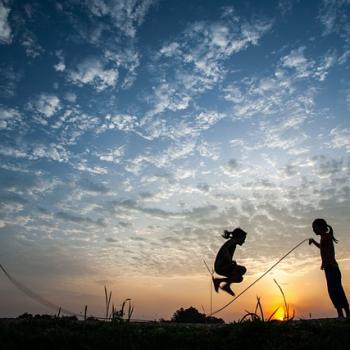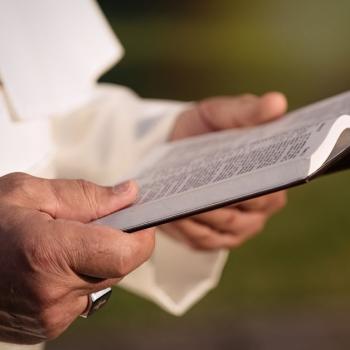Nonetheless, there's a difference between that impulsive courage—the kind that leads people to charge into battle without a plan, have unprotected sex, or start undercapitalized dot-coms—and the courage of an Aung San Suu Kyi, or, for that matter, an ordinary person who lives daily with hard choices without flinching.
So, what does courage tempered with wisdom look like, as opposed to the kind of courage that prompts your friends to say "You're so brave!" when what they're actually thinking is, "You're so out of your mind!"
Basically, we're talking about the difference between the raw and the cooked, the green and the ripened. Between raw courage and the kind that's ripe and seasoned lies a whole world of discipline, surrender, and experience.
Raw courage, for one thing, is based on emotion, fueled by anger and desire. It often acts out of noble motives, yet raw courage can also operate without morals or ethics, or in the service of aims that are unconscious, deluded, or even downright sleazy. The real mark of uncooked courage is the trail it leaves—often, a karmic minefield of misunderstanding, pain, and enmity that really does come back to bite us if it isn't cleared.
Cooked courage, ripe courage, on the other hand, contains discipline, wisdom, and especially, a quality of presence. Skill has something to do with it, of course. It's much easier to act bravely when you know how to do what you're doing. Ultimately, though, ripened courage seems to rest on profound trust in something greater than your personal self-interest—trust in the Self, trust in love, trust in the divine, trust in the power of your own awareness, trust in the stability of your own Center.
That level of trust only comes out of inner experience, a kind of spiritual maturity. Out of that trust, a person with ripe courage can often surrender both the fear of losing and the desire to win, and act for the sake of action, even for the sake of love, like the monk in the famous Zen story whose temple is invaded by an enemy warrior with a sword. "Do you know that I have the strength to kill you with this sword?" the warrior says. The monk replies, "Do you know that I have the strength to let you?"
Ripe courage arises from that stillness. In the Budo martial arts tradition, it's said that the source of true courage is the willingness to die, to lose everything—not because we have "throwaway lives," but because we've entered so fully into our own Center that we know it will hold through death. In such a state, they say, a samurai can pacify an enemy without picking up his sword, because the stillness is contagious. That samurai's courage is based on practice, a continual emptying of the mind in meditation, a continual settling into inwardness, and finally a surrender into egoless awareness that is like literally dying to the small self.
There's more than one way to get to the source of courage, of course. The grace-based path to inner courage comes from radically opening into love, through prayer as well as contemplation, and from trust in the power of your divine source. I think of one path as the masculine path—the path of fearlessness through reliance on self—and the other as the feminine path—the path of fearlessness through trust in love. One of my teachers used to say that the great question to contemplate in any situation is "In what do you place your trust?' He would say that if your trust is in something truly great, your own sense of being will ultimately expand into that greatness. If your trust is in something small or limited, even in your own strength of body, mind or will, it eventually lets you down. Fear, after all, is based on the feeling of separation and smallness. Where there's the intuition of your own deeper being, fear becomes beside the point.
Whether you approach that beingness through emptying of self, like the great martial artists and classical yogis or through devotional opening to grace, you always seem to go through the doors of stillness, centering, and surrender. The more we are in touch with the center and the source beyond it, the more we are able to touch that courage that doesn't just rise to handle a crisis, but that also allows us to keep getting up in the morning and facing our interior darkness or buried grief, hanging in through the mud-slogging grind of transformative practice, standing up for what is right again and again without bitterness—or at least only a little.
A young woman recently told me how she found that place of courage. She had volunteered to teach yoga in a probation program for teenage girls. She says now that she had expected them to get yoga and her own good intentions immediately. Instead, they made fun of the poses and of her. Soon, she was both dreading the classes, and at the same time, thinking of them as a test of her own strength.
"I felt that I had to win them over," she said. "Of course, it was all ego. The more I tried, the worse it got. The girls would mimic me, laugh at me, roll their eyes at my increasingly lame attempts at humor."





